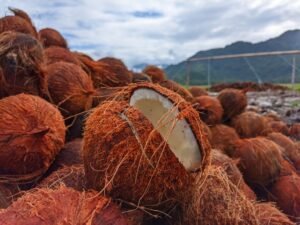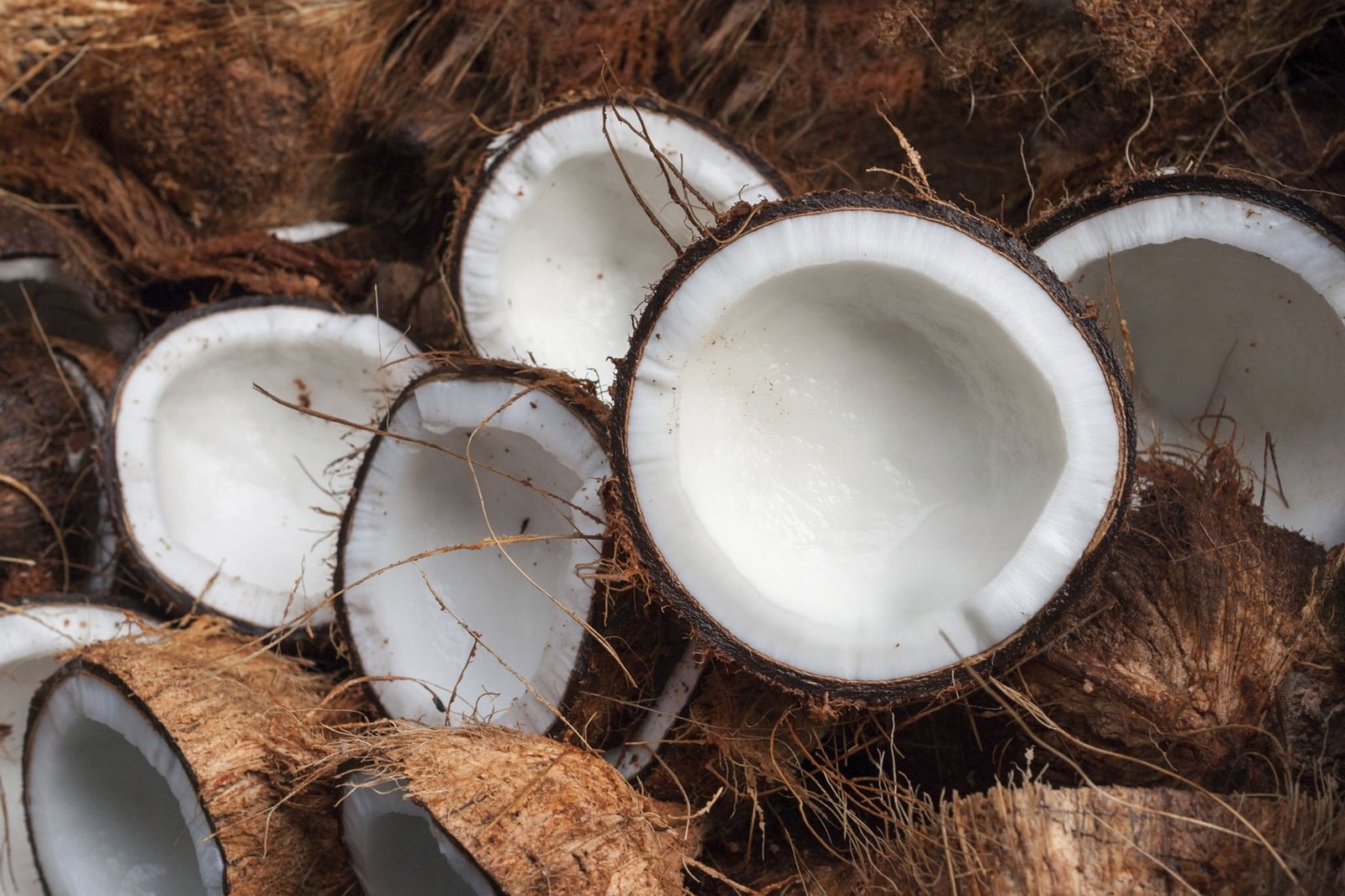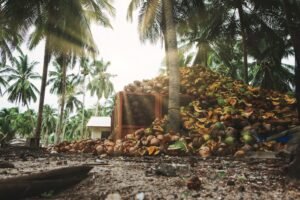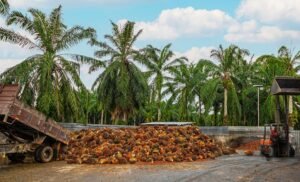
Eco-Friendly Coconut Processing for Global Buyers

Sustainable Coconut Processing with Eco-Friendly Practices
The global demand for coconuts has grown steadily, but so expects sustainability. Buyers in the UK, Europe, and Southeast Asia are no longer just looking at product quality; they want assurance that the sourcing and processing align with eco-friendly practices. Eco-friendly coconut processing is about more than meeting market demand. It ensures long-term viability for the industry while reducing environmental harm. For global buyers, this balance between sustainability and quality has become a key factor in trade.
Why Eco-Friendly Coconut Processing Matters for International Markets
Eco-friendly coconut processing is not just a trend but a necessity. International markets, especially the UK and European Union, have strict compliance rules that emphasize sustainability, low carbon emissions, and ethical sourcing. Exporters adopting green practices gain an advantage, as buyers increasingly align with suppliers who prioritize environmental responsibility. This shift benefits both exporters and consumers by creating transparent and trusted trade partnerships.
Methods Used in Sustainable Coconut Processing
Eco-friendly coconut processing involves specific methods designed to reduce environmental impact while maintaining high product quality. These include:
- Using solar-powered dryers instead of fossil-fuel systems.
- Recycling coconut husks into coir products and biofuel.
- Implementing water conservation techniques during processing.
- Adopting biodegradable packaging for exports.
- Training workers in safe and sustainable processing practices.
These methods make the coconut supply chain more sustainable while ensuring that exporters remain compliant with international sustainability standards.
How Buyers in the UK, Europe, and Southeast Asia Benefit from Eco-Friendly Practices
For buyers across different regions, eco-friendly coconut processing adds measurable value. In the UK, buyers trust suppliers who meet eco-label certifications, ensuring safe and sustainable imports. Europe focuses heavily on reducing carbon footprints, so sustainable processing helps align with consumer-driven policies. Meanwhile, Southeast Asian buyers seek reliable trade partners that can balance affordability with eco-conscious production. By sourcing from exporters committed to green practices, buyers can confidently market coconuts as both premium and sustainable.
Challenges in Implementing Eco-Friendly Coconut Processing
While the benefits are clear, coconut exporters face challenges when adopting sustainable methods. The initial investment for solar drying systems, advanced recycling plants, or biodegradable packaging can be high. Additionally, small-scale farmers often need training and infrastructure support to comply with eco-friendly processing standards. Despite these hurdles, exporters who invest in sustainable systems position themselves as long-term leaders in the global coconut trade.
Future of Eco-Friendly Coconut Exports and Global Trade
- Sustainable Practices: Eco-friendly coconut processing will play a crucial role in shaping global trade, benefiting exporters who implement green practices.
- Competitive Advantage: Exporters adopting sustainability measures early will gain a head start in accessing new markets as sustainability regulations become stricter.
- Traceable Supply Chains: The coconut industry is moving towards fully traceable supply chains, allowing buyers to track each step from farm to shipment.
- Stronger Trade Partnerships: Embracing eco-friendly processing methods today can lead to the formation of stronger trade partnerships for exporters.
- Long-term Growth: By prioritizing sustainability, exporters can ensure broader market access and secure long-term growth in the coconut industry.
Sustainable Coconut Processing for International Buyers
Eco-friendly coconut processing is more than just a compliance step; it is a strategic necessity for exporters aiming to meet the growing expectations of buyers worldwide. By aligning with sustainable coconut production and green processing methods, exporters not only safeguard the environment but also create opportunities for wider acceptance in competitive markets such as the UK, Europe, and Southeast Asia. This approach builds trust, ensures smooth exports, and contributes to a stronger, more resilient coconut industry for the future.
Key Takeaways:
- Eco-friendly coconut processing ensures both product quality and sustainability.
- Buyers in the UK, Europe, and Southeast Asia demand environmentally responsible exports.
- Sustainable coconut production aligns with global trade compliance rules.
- Solar-powered dryers reduce carbon footprints in coconut processing.
- Recycling coconut husks into coir and biofuel minimizes waste.
- Biodegradable packaging supports eco-conscious exports.
- UK buyers look for eco-label certifications in coconut imports.
- European markets emphasize carbon reduction across the coconut supply chain.
- Exporters face challenges like high investment and training needs but gain long-term benefits.
- The future of the coconut industry depends on traceability and sustainable practices.
Lorem ipsum dolor sit amet consectetur.
Lorem ipsum dolor sit amet consectetur. Consequat vulputate convallis eget mollis viverra nunc mi egestas. Risus facilisi nullam donec.


